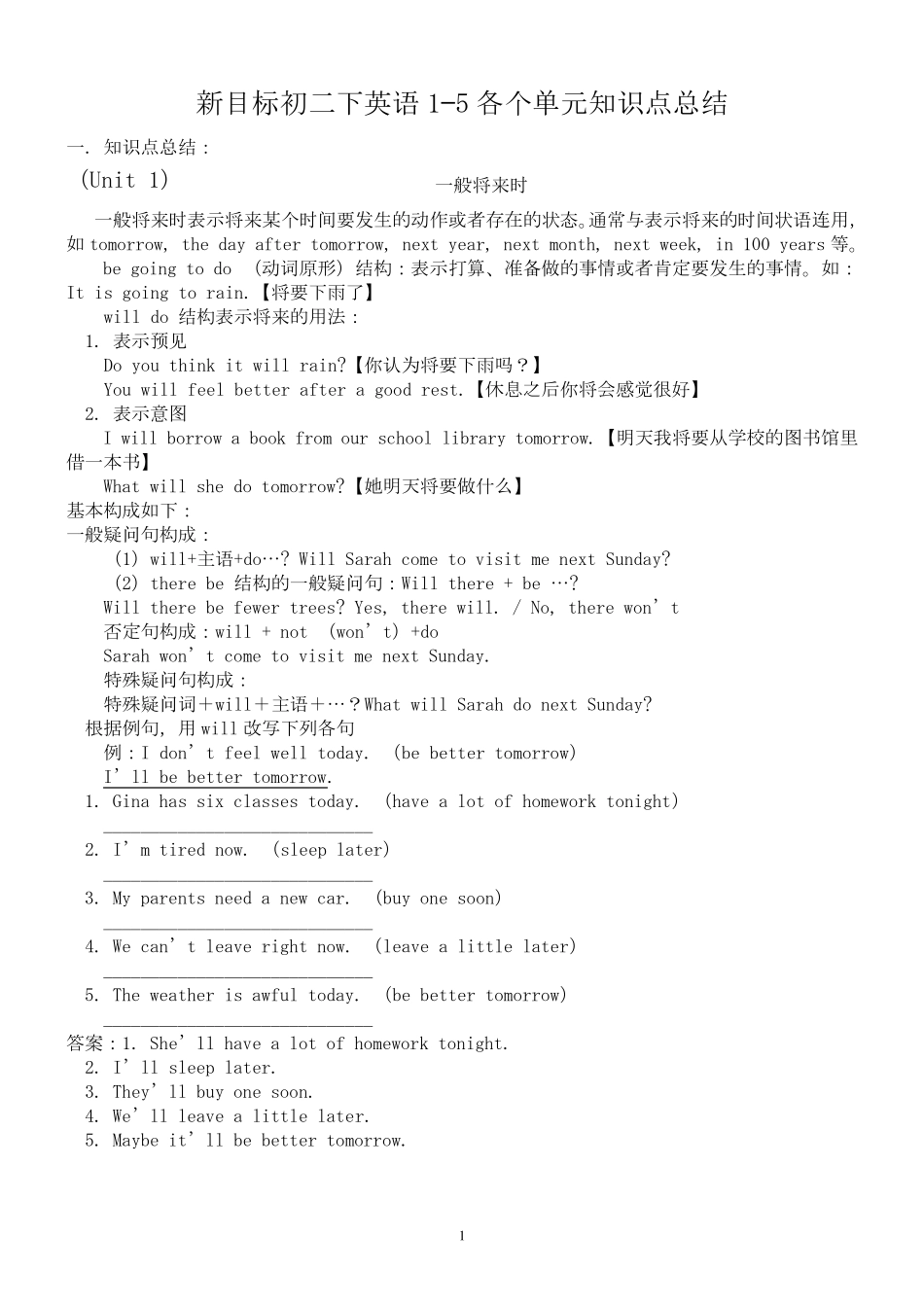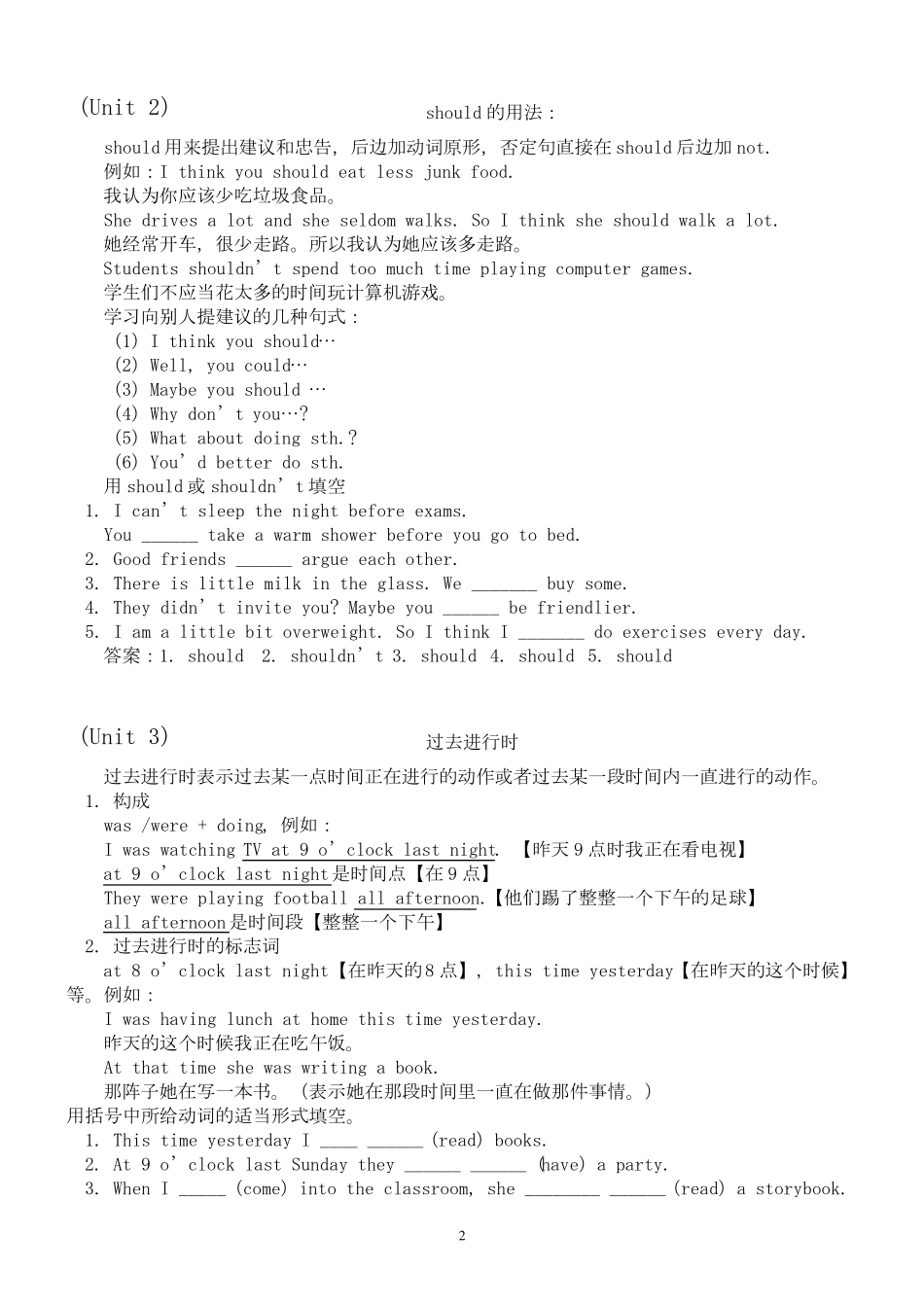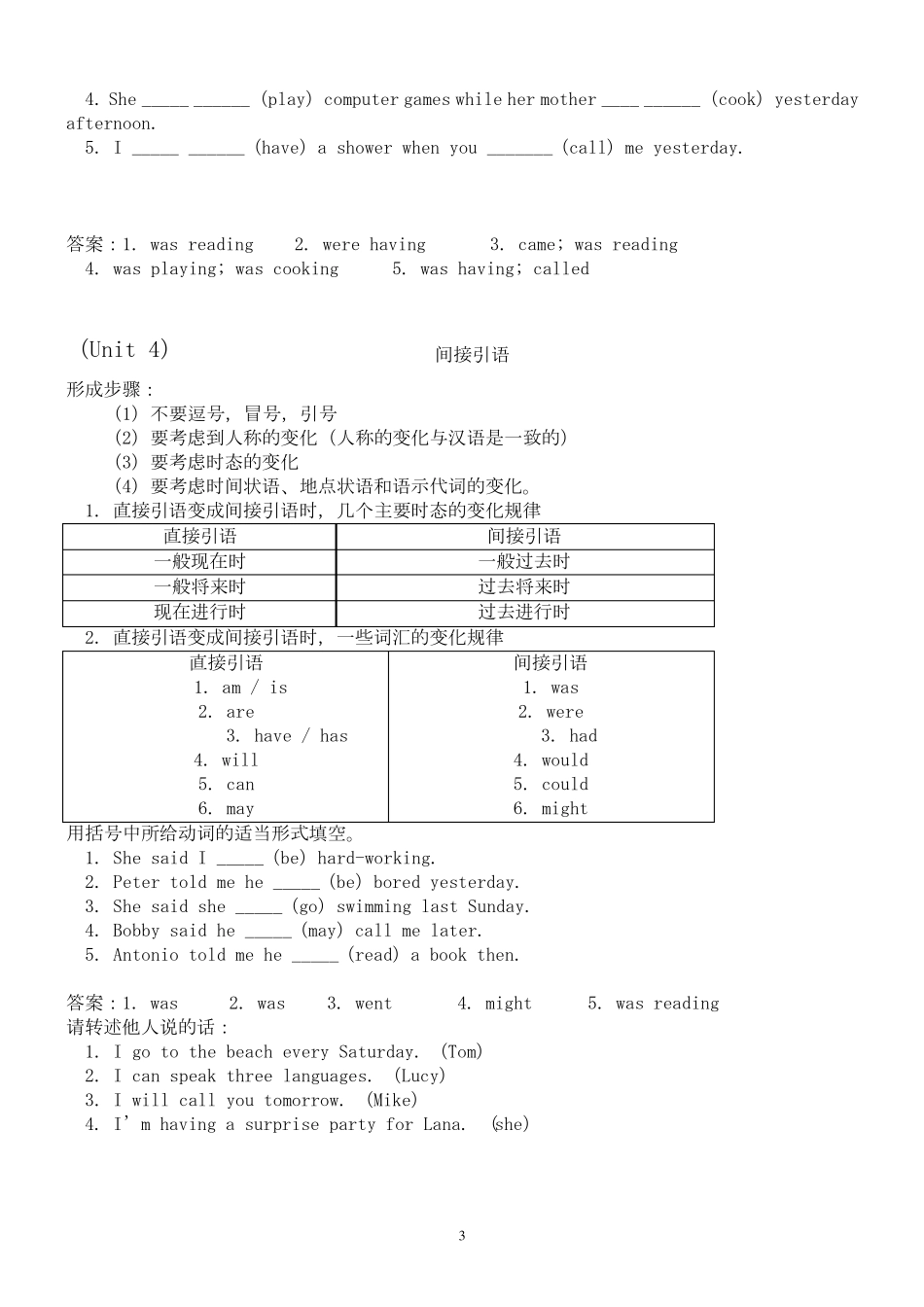1 新目标初二下英语1—5 各个单元知识点总结 一. 知识点总结: (Unit 1) 一般将来时 一般将来时表示将来某个时间要发生的动作或者存在的状态。通常与表示将来的时间状语连用,如tomorrow, the day after tomorrow, next year, next month, next week, in 100 years 等。 be going to do (动词原形)结构:表示打算、准备做的事情或者肯定要发生的事情。如:It is going to rain.【将要下雨了】 will do 结构表示将来的用法: 1. 表示预见 Do you think it will rain?【你认为将要下雨吗?】 You will feel better after a good rest.【休息之后你将会感觉很好】 2. 表示意图 I will borrow a book from our school library tomorrow.【明天我将要从学校的图书馆里借一本书】 What will she do tomorrow?【她明天将要做什么】 基本构成如下: 一般疑问句构成: (1)will+主语+do…? Will Sarah come to visit me next Sunday? (2)there be 结构的一般疑问句:Will there + be …? Will there be fewer trees? Yes, there will. / No, there won’t 否定句构成:will + not (won’t)+do Sarah won’t come to visit me next Sunday. 特殊疑问句构成: 特殊疑问词+will+主语+…?What will Sarah do next Sunday? 根据例句,用will 改写下列各句 例:I don’t feel well today. (be better tomorrow) I’ll be better tomorrow. 1. Gina has six classes today. (have a lot of homework tonight) _____________________________ 2. I’m tired now. (sleep later) _____________________________ 3. My parents need a new car. (buy one soon) _____________________________ 4. We can’t leave right now. (leave a little later) _____________________________ 5. The weather is awful today. (be better tomorrow) _____________________________ 答案:1. She’ll have a lot of homework tonight. 2. I’ll sleep later. 3. They’ll buy one soon. 4. We’ll leave a little later. 5. Maybe it’ll be better tomorrow. 2 (Unit 2) should 的用法: should 用来提出建议和忠告...


